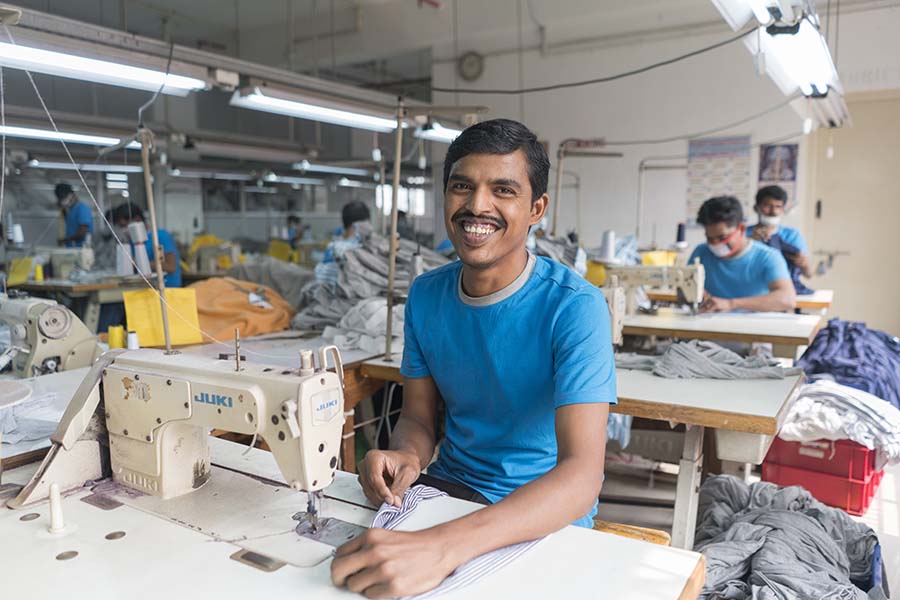Like many of us, I have felt helpless at times, being stuck at home during the covid-19 pandemic. What can I do to help, I've thought. I am not a doctor or nurse or other essential worker. Neither am I a scientist, public health officer or teacher. Then, when the fires and smoke came to Northern California, where Mightly is based, I was reminded that I wasn’t a firefighter or disaster recovery expert either. And I can’t just go and volunteer, since I am the primary caregiver to two small children. Feeling stuck, and being literally, physically stuck, was exacerbating my feelings of hopelessness. This year’s largest wildfire was only a few miles away and coming closer, just adding yet another fear about my family’s safety.
And then I remembered to think small. When you’re a parent of small children, it’s the small victories that are celebrated. All the pee went in the potty this time! Broccoli eaten without tears! Tucked in before 8:00pm! And all of those small victories add up over time, to the point where the children are happy and well adjusted adults. For now I’m happy to have kids that sleep through the night (mostly) and eat vegetables without complaint (sometimes).
The fair trade movement is also all about small. The idea behind fair trade is that each time you buy a cup of coffee -- or, in our case, an item of Mightly’s children clothing -- a percentage of that purchase goes back directly to the factory workers in the form of a Fair Trade Premium. Fair Trade USA’s new #JustOneCup campaign is all about transforming small into big. If you are going to drink a cup of coffee each day, then you might as well make it a Fair Trade CertifiedTM cup, because Fair Trade certification guarantees a minimum price to help coffee producers and pays producers an additional Premium for every pound sold that goes to address community needs. Although this idea of fair trade coffee is relatively new, it adds up. Over the last 21 years, Fair Trade USA’s programs have generated over $740 million in financial benefit to producers!
Fair trade textiles -- and that’s where Mightly comes in -- is a newer program than Fair Trade Certified coffee. Mightly’s CEO, Tierra Forte, helped develop Fair Trade USA’s Apparel and Home Goods Program less than a decade ago, when she worked for the non-profit organization. The first Fair Trade Certified textile pilot program ran from 2010 to 2012, with eight factories and 400 workers participating. Over $28,353 in premiums was paid to worker committees and another $7,846 to cotton producers. Too small, you might think? Why bother, for all this effort, for a mere $28k sent back to the workers?
Well, like many things that start small, the Fair Trade Apparel and Home Goods Program has grown over the last decade. By 2015, 22 factories impacting 16,000 workers were participating in the program, with factory workers earning nearly $450,000 in community development premiums by the end of 2015. By 2020, the program reached over 75 factories in 13 counties, with 140,000+ fair trade factory employees benefiting. Major companies, like Patagonia, West Elm and Target, began participating. Fair Trade Premiums, sent directly back to the factory workers, have now reached millions of dollars.
Small things add up to big things, given time. We started Mightly a little over a year ago with a vision, a shoestring budget and a small collection of organic cotton children’s tees. We now carry not just children’s tees, but pajamas, leggings, hoodies, long sleeve shirts, summer and winter dresses, and, coming this week, face masks and boys and girls underwear. And our products are not just any products, but are GOTS certified organic and, by the end of this year, will be 100% Fair Trade Certified.
So if you’re stuck in one room with your kids and discover that the eight year old has outgrown the pajamas you just bought for her two months ago and the little one has managed to put a hole through her leggings (how did that happen, when we can’t even go outside?) -- do a little online shopping at www.mightly.com. We started this company to make the kind of clothes we want for our own kids: play friendly, people friendly and planet friendly.
Every purchase matters, look for the Fair Trade Certified label, and know that you can make a difference.

Subroto Mondal 28, from West Bengal, works in sewing at the Paridhan factory of Rajlakshmi Cotton Mills. "It felt good when the first premium arrived after we produced Fair Trade garments for a year. I never thought something like this was possible. I'm proud to have clothes I have worked on reach the US, England, Australia and all over the world. When people buy these products, it benefits us. We hope consumers will continue and invest in us. The impact of these premiums reach far beyond the factory - each worker has a home village and relatives that in small and big ways truly benefit. I personally left school after the 10th grade. My hope is to invest in my children's' futures so they can have a better future. Working here in a Fair Trade factory, I believe this is more possible."



